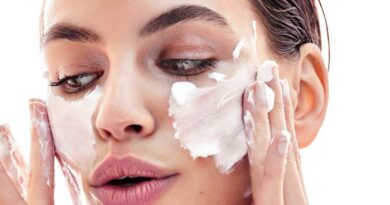OCEAN FRIENDLY: BLUE BEAUTY CURRENT
There is always something more we can do to have a more sustainable lifestyle. When we say vegan make-up products and sustainable skin care brands, more ethical and thoughtful steps are taken in the pleasantness department. With the anti-fur trend in the fashion segment, the fashion and elegance segments, which started to give more value to the world and the environment, are developing more minded systems. Brands that reduce their carbon footprints with new technologies and production techniques are rapidly moving towards being sensitive to the environment and the world. Now, there is a new sustainable trend on the radar of the cuteness segment: Blue beauty! Unlike the ‘Green Beauty’ movement, which has a rather focused agenda, the Blue Beauty movement works for a reasonable purpose. When it comes to beauty and clothing, we follow and convey all trends with great care… New trends that offer a more sustainable future require more attention than anything else. That’s why you can review everything you need to know about Blue Pleasure below and be more sensitive to the environment by making the necessary changes in your skincare collection.
WHAT IS BLUE PLEASURE?
According to WWF, a truckload of plastic waste is dumped into the oceans every minute, which is equivalent to 8 million tons of plastic every year! Many of the plastic wastes that cause significant damage to the oceans also come from the packaging of our works. Jeannie Jarnot, the founder of the Blue Pleasure movement, said, “Many people associated blue with ocean friend. Yes, this is a module of the current, but we are actually talking about a much broader event. Mavi Pleasant brands make sure that their works are faithful for the environment. That means ocean-friendly, but there are also sustainable resources and elements to reduce the carbon footprint. Mavi Pleasant brands design works that have a positive impact on the environment and reinforce the environment.” says the Blue Pleasure movement.
One of the most valuable elements of this trend is to reduce the rate of plastic waste, to use recyclable artifacts and to protect the oceans from the harmful chemicals in the artifacts. About 120 billion cosmetic packages are produced annually, and more than one of them consists of non-recyclable materials. It is not enough to change only the packaging to be beneficial to the environment, because many items can have a negative effect on the environment. What is valuable in this trend is that the packaging can be reused or refilled for something else. The brands that are the module of the Blue Pleasant trend often create multi-sided packaging or produce it in a refillable form.
WHAT IS THE DIFFERENCE BETWEEN BLUE AND GREEN PLEASURE?
Contrary to the Green Pleasure trend, the Blue Pleasant trend does not only use materials from pure and sustainable sources. The difference of Blue Pleasure comes from the sensitivity to the packaging. The use of materials that will not harm the seas and oceans, the reduction of water waste and the reduction of plastic waste thrown into the oceans distinguish Blue Pleasure from Green Pleasure.
Although both sustainable pleasant flows are valuable in terms of global climate change and environmental sensitivity, the oceans are one of the most valuable things for human beings in terms of resources, production and efficiency. For this reason, both currents of pleasantness are of great importance in beautifying the environment and ensuring that it is not damaged.
In addition, ‘Clean Beauty’ is generally associated with products and ingredients that are not toxic to your skin and do not harm your body. However, we should also consider that synthetic perfumes or silicones in products such as shampoo, cream, deodorant and make-up flow into your sinks and then mix with the water. ‘Clean Beauty’ works may not harm your skin, but some of the materials in these works may be damaging to the environment! Waste content, which is still used quite a lot in daily use, goes to more than one environment, the sea or the plants.
WHAT IS THE EFFECT OF BEAUTY WORKS ON THE OCEANS?
Did you know that by 2050 there will be more plastic than fish in the oceans? This indicates that change is needed quickly! Plastic waste pollution is one of the biggest crises for the environment. Plastic waste, which harms the creatures and life in the oceans, also pollutes the coasts and coasts. You can help the world conserve and improve its natural resources by reducing the use of unnecessary plastic in your daily life. You can make a valuable contribution to the environment on your own by choosing refillable works, rather than the plastic goodies that you normally throw away. Some of the Mavi Pleasant brands use recycled plastic in their packaging, preventing the creation of new waste. For this, you can pay attention to the ‘PCR’ (post-consumer plastics) writings in the works. If the works you use cannot be recycled, then it’s time to be creative! For example, you can use old cream packaging as a jewelry box!
One of the biggest threats to coral reefs is sunscreen. Sunscreens, which protect us from harmful sun rays, actually harm the ecosystem of ocean creatures with their ingredients such as ‘oxybenzone’ or ‘octinoxate’. Alternatively, the ‘Caudalie’ and ‘Coola’ brands ensure that you are both protected from the sun and not harming the environment with their ingredients that do not harm corals.
WHICH SKIN CARE AND MAKEUP BRANDS FIT THE BLUE PLEASURE TREND?
The change in the beauty world continues rapidly. In the midst of the pleasantness segment, which has become much more sustainable and ethical in recent years, there are brands that have devoted their money and production to the environment. Below you can see the beauty brands that follow the ‘Blue Beauty’ trend…
1. REN CLEAN SKINCARE
Expecting to reach zero waste next year, REN Clean Skincare is ending the use of plastic in its packaging to protect ocean health and the environment. By recycling plastic waste collected from the oceans, REN makes your skin care cabinet more sensitive.
Glow Vitamin C-Vitamin Gel Cream £38, Dark Spots Night Cream £49, AHA Body Serum £35, REN CLEAN SKINCARE cultbeauty.co.uk
2. ETHIQUE
Ethique, which does not use packaging to reduce the plastics thrown into the oceans and the environment, produces shampoos and conditioners as soap. Stating that by stopping packaging production, water waste is prevented at the same time, Ethique says that 132.8 billion water is wasted annually just for shampoo bottles.
Orange and Vanilla Body Soap $13, The Guardian Dry and Damaged Hair Care $17, Jasmine and Ylang Ylang Body Care $13 ETHIQUE ethique.com
3. ONE OCEAN BEAUTY
One Ocean Beauty uses ‘blue biotechnology’ innovation, using ingredients that do not harm the oceans to keep the oceans clean. One Ocean Beauty works, which have 100% recyclable packaging, also have sustainable ingredients.
Bioactive Body Sculpting Marine Cream £89, Deep Sea Moisturizer £65, Blue Light Protecting Moisturizing Mist £46, ONE OCEAN BEAUTY cultbeauty.co.uk
4. KEVIN MURPHY
Hair care brand Kevin Murphy, which saves 360 tons of plastic waste to be thrown into the oceans, uses recycled packaging. Starting a one-on-one education program, Kevin Murphy aims to raise awareness among consumers about climate change and ocean health.
Blonde.Angel Conditioner £23, Shimmer.Shine Hair Care Serum £25, Killer.Waves Treatment for Wavy £31 KEVIN MURPHY cultbeauty.co.uk
5. L’OCCITANE
Using refillable packaging for its bath gels and shampoos, L’Occitane aims to reduce plastic waste. L’Occitane, which has developed new initiatives in recent years, has also partnered with ‘Plastic Odyssey’, which cleans plastic waste around the world. Using recycled plastic waste in its packaging, L’Occitane aims to make your care collection more delicate.
Shea Butter Soap 65 TL, Immortelle Cream 445 TL, Eco-Refill Refillable Shower Gel 220 TL, L’OCCITANE loccitane.com.tr




